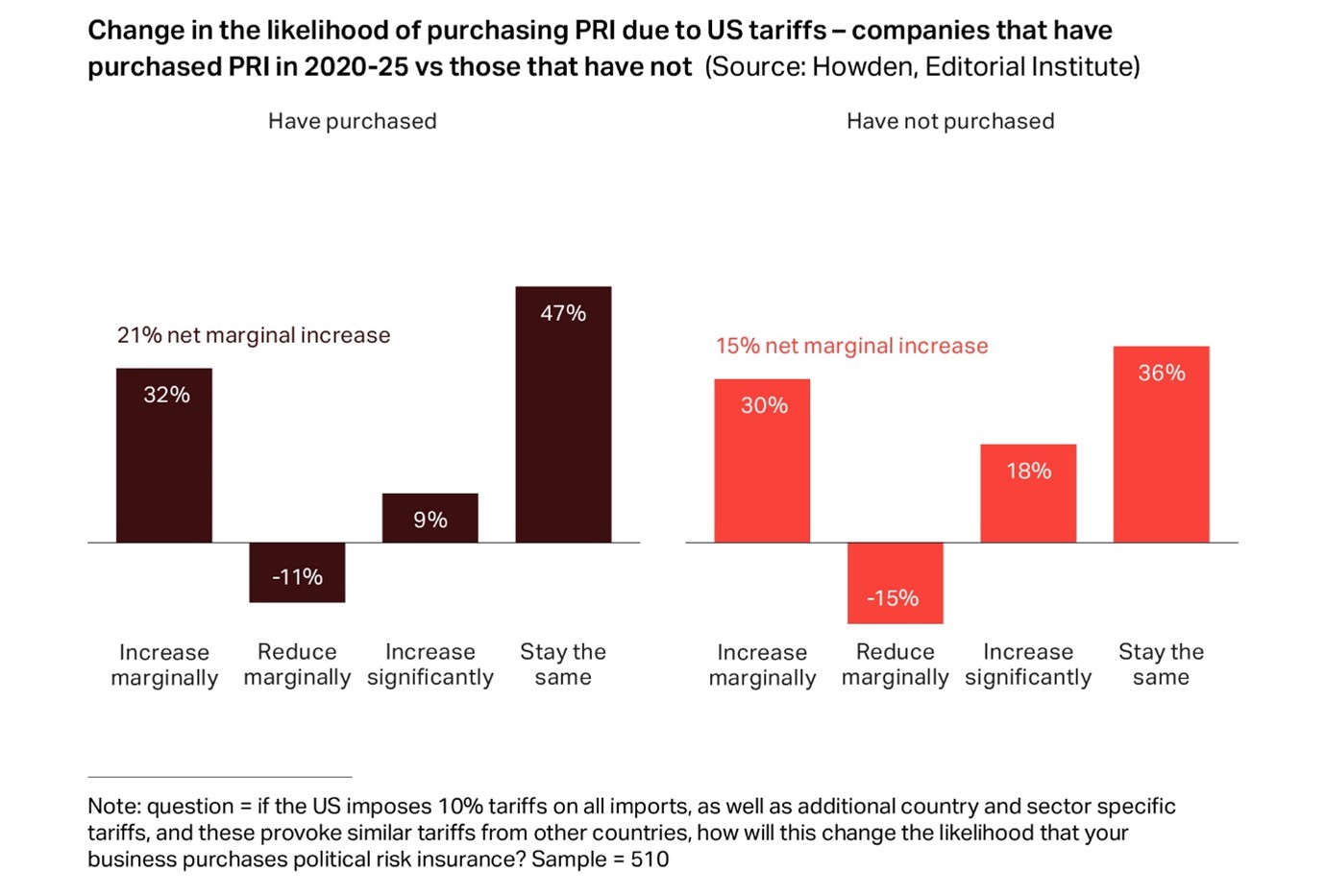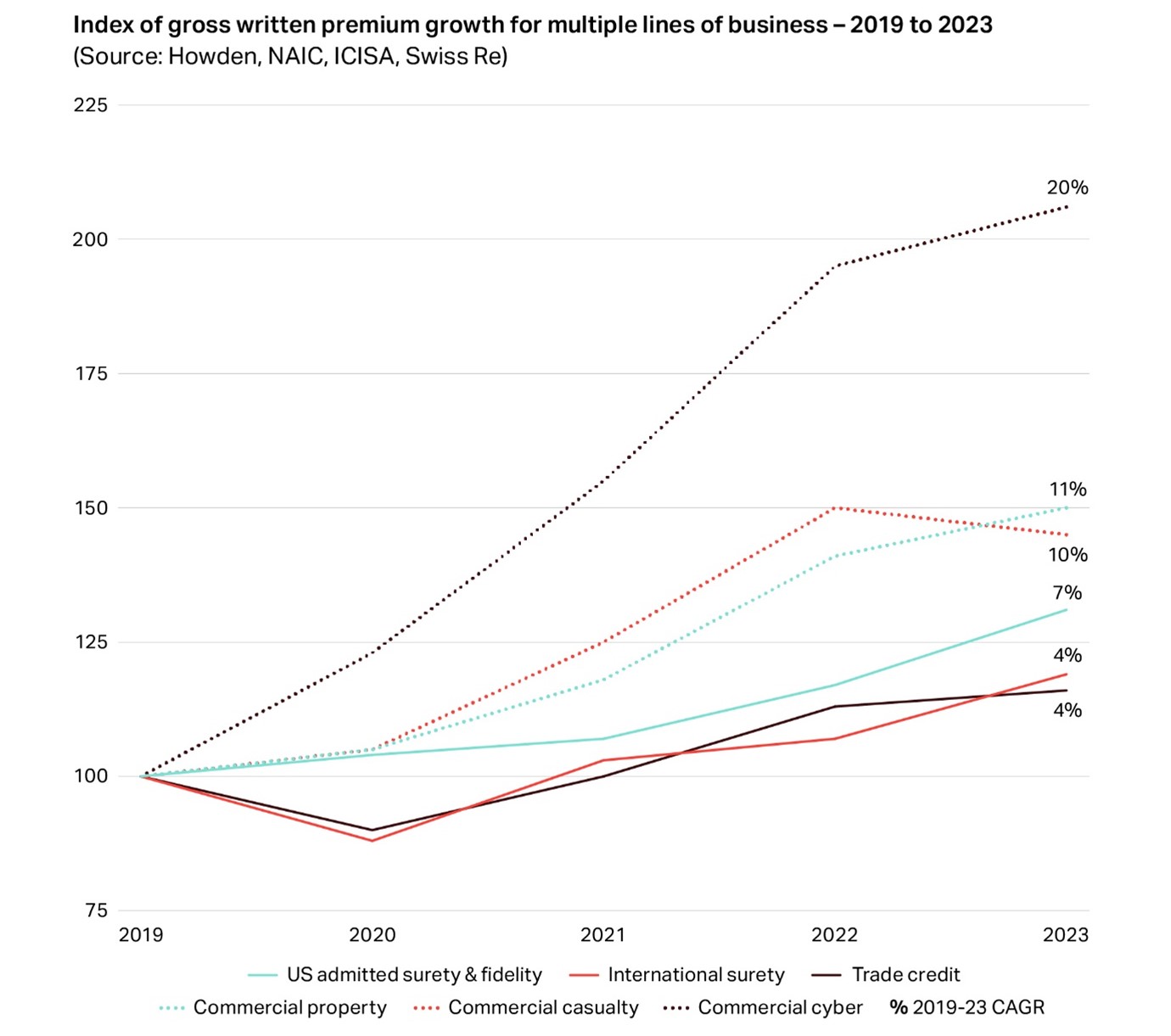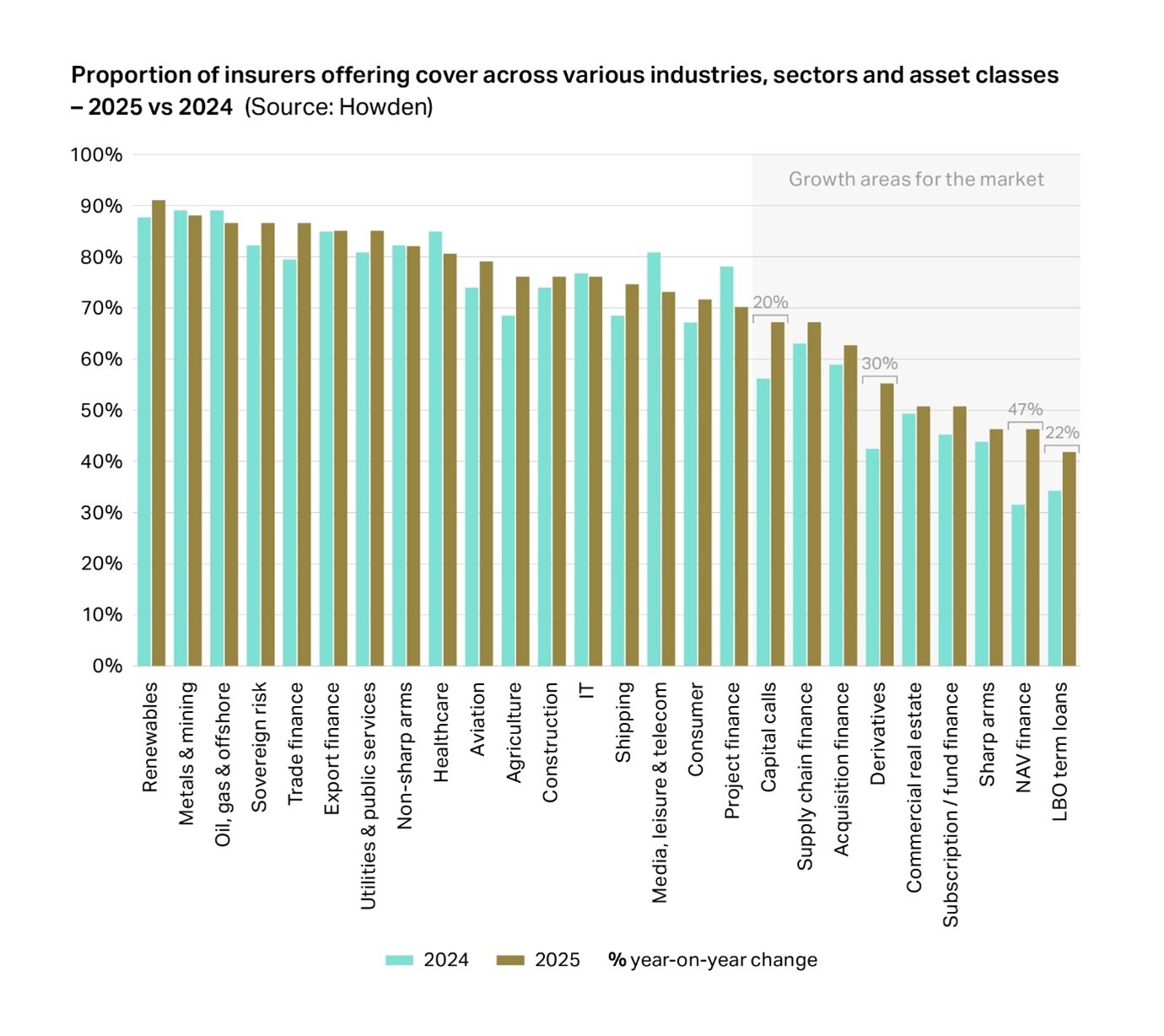‘Opportunity in flux’: Howden report reveals demand for political risk insurance up 33% in response to trade disruption and economic shocks
- Despite rising demand and strong underwriting performance, growth lags in certain areas of the credit and political risk market¹, with premium growth in trade credit running at less than half that of property and casualty and a fifth of cyber since 2019
- Research highlights the opportunity for the $50 billion surety and credit and political risk market to further diversify its risk pool to increasingly serve clients’ evolving needs and support economic growth
London, 22 May 2025 – Howden releases its new credit and political risk insurance (CPRI) report, Opportunity in flux. Intensifying geopolitical rivalries, policy uncertainty and competition for critical minerals are reshaping the risk landscape as well as driving demand for protection.
Research in the report finds that new demand for political risk insurance is up by a third due to considerable uncertainty around the geopolitical and macroeconomic environment. Amid the softening of the broader insurance cycle, Howden’s report argues that now is the time to draw in additional new entrants and for existing CPRI carriers to accelerate ventures into new asset classes and territories.
Get the full report (PDF)

Market opportunity
With an aggregated premium base of $50 billion, according to Howden’s research, the CPRI and surety market surpasses the size of many other specialty insurance markets, including marine and energy.
The series of economic and geopolitical shocks in recent years has done little to hold back the CPRI market’s performance: it consistently delivers healthy net combined ratios, with trade credit in the range of 70-80%, which sits at the top end of the broader CPRI market. These results rival the best underwriting in the market, and it is therefore equipped with the skills and expertise for sustainable expansion.
While the market has performed strongly, premium growth has not developed at the pace of other business lines, including property and cyber. There is room for a greater growth rate in today’s world; CPRI presents a compelling case from both a buyer and capacity provider perspective in supporting businesses to invest and trade through heightened volatility whilst delivering market-leading underwriting results.

Driving economic growth
The report identifies some of the less penetrated asset classes ready for expansion that offer a strong underwriting opportunity for the market to drive economic growth. This will provide buyers with the certainty they need to expand into new territories and grow their portfolios in a new world order.

Matthew Strong, Deputy CEO, Howden CAP and Head of Credit and Political Risk, comments: “The CPRI market’s outstanding long term performance is testament to the deep sector expertise that pervades the value-chain. With demand for CPRI protection rising, now is the time for the market to step up even further. This will enhance global economic growth by increasing commitments and innovating, as well as providing businesses, lenders and public sector entities around the globe with the certainty they need to trade and invest with confidence.”
Phil Bonner, Managing Director, Global Specialty Treaty, Howden Re adds: “Opportunity is the key takeaway to emerge from our report. Yes, risk is up in a highly fractured world, but providing protection to help clients trade and invest through such uncertainty is precisely why CPRI exists. Our market does this in a way no other can whilst achieving exceptional performance, as demonstrated by underwriting results that rival any other product line of insurance. As demand for protection rises in response to global instability, our call to action for the market is to not only provide adequate supply but to also offer underwriting flexibility and imagination that keep up with clients’ changing needs.”
[1] This market breakdown runs across six different segments: US admitted and fidelity, international surety, trade credit, non-payment insurance, export credit agencies and political risk.